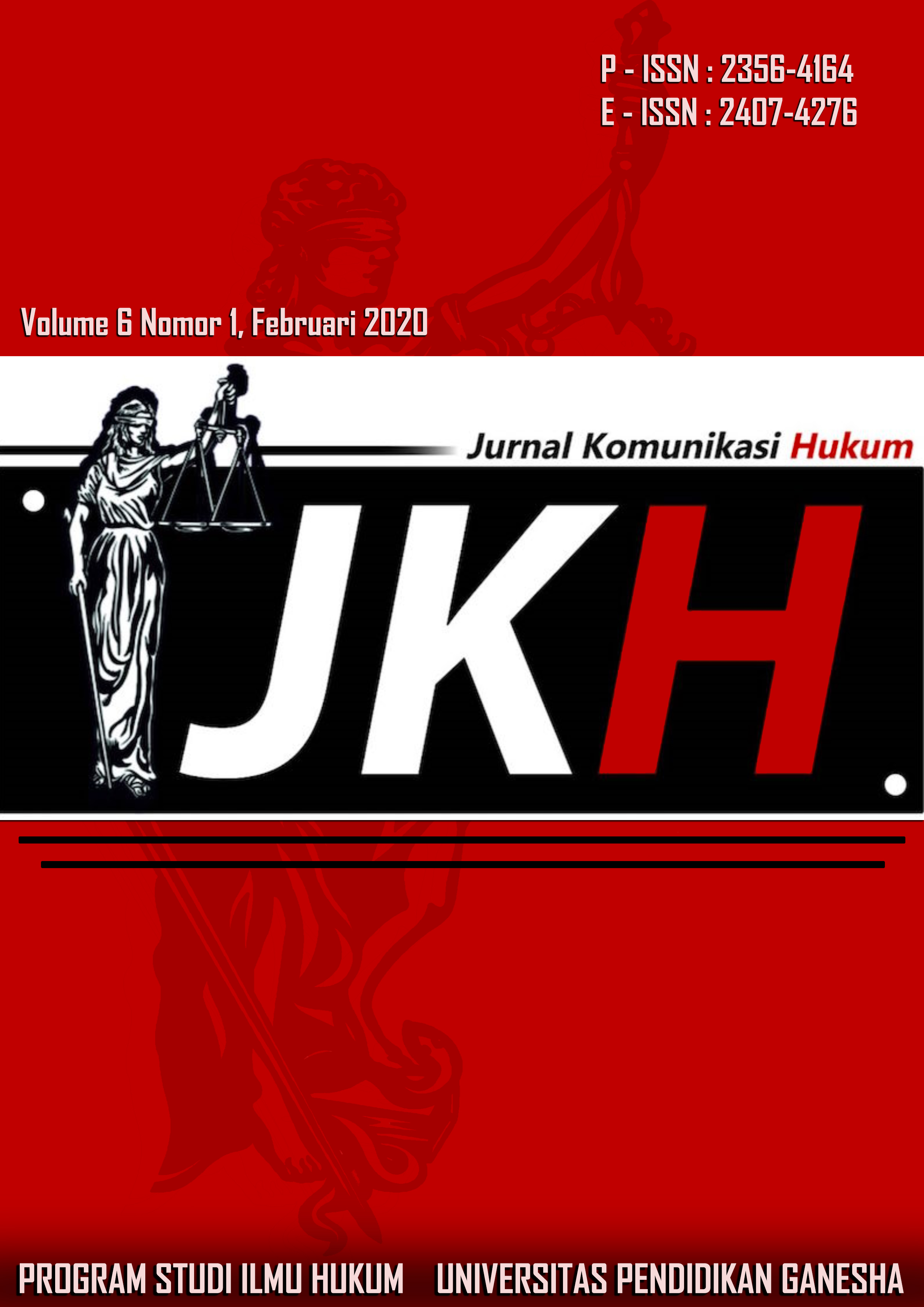BORDER MANAGEMENT BETWEEN INDONESIA AND MALAYSIA IN INCREASING THE ECONOMY IN BOTH BORDER AREAS
DOI:
https://doi.org/10.23887/jkh.v6i1.23473Abstract
Border governance is a necessity for Indonesia as an archipelagic country bordering maritime and / or land with other countries. Indonesia is located geographically between two continents and two oceans and no less than 17,504 islands. the border region has a very strategic multifunctionality. Politically, border areas provide legal certainty for internal and external sovereignty, both in the context of managing government administration and applying national law and in engaging with other countries. The existence of clarity of this border region will also provide legal certainty for a country for the utilization and management of natural resources contained in its territory for the benefit of the prosperity of the whole community. Border management must also be aimed at the prosperity of the people, especially those living on the border. The development of socio- economic activities to improve the socio-economic well-being of people at the border is very important because it will directly and indirectly strengthen the security aspects at the border. As a "front page & quot; the creation of prosperity at the border will contribute positively to the conditions of security and defense, both regionally and nationally.
Keywords: borders, boundary management, economy
Downloads
Published
How to Cite
Issue
Section
License
Authors who publish with this journal agree to the following terms:- Authors retain copyright and grant the journal right of first publication with the work simultaneously licensed under a Creative Commons Attribution License that allows others to share the work with an acknowledgement of the work's authorship and initial publication in this journal.
- Authors are able to enter into separate, additional contractual arrangements for the non-exclusive distribution of the journal's published version of the work (e.g., post it to an institutional repository or publish it in a book), with an acknowledgement of its initial publication in this journal.
- Authors are permitted and encouraged to post their work online (e.g., in institutional repositories or on their website) prior to and during the submission process, as it can lead to productive exchanges, as well as earlier and greater citation of published work (See The Effect of Open Access).
Authors who publish with this journal agree to the following terms:
- Authors retain copyright and grant the journal right of first publication, with the work [SPECIFY PERIOD OF TIME] after publication simultaneously licensed under aCreative Commons Attribution License that allows others to share the work with an acknowledgement of the work's authorship and initial publication in this journal.
- Authors are able to enter into separate, additional contractual arrangements for the non-exclusive distribution of the journal's published version of the work (e.g., post it to an institutional repository or publish it in a book), with an acknowledgement of its initial publication in this journal.
- Authors are permitted and encouraged to post their work online (e.g., in institutional repositories or on their website) prior to and during the submission process, as it can lead to productive exchanges, as well as earlier and greater citation of published work (See The Effect of Open Access).












